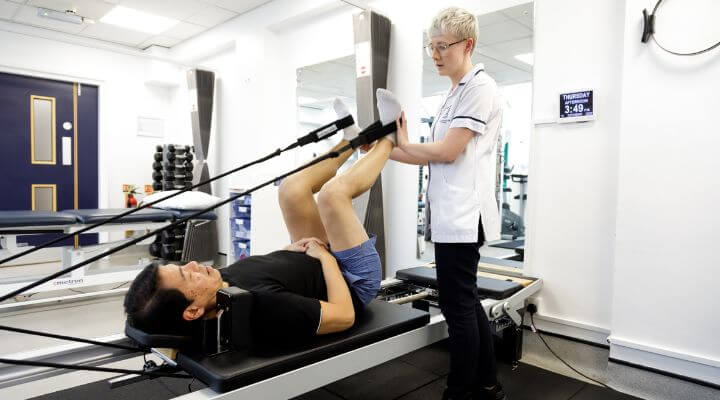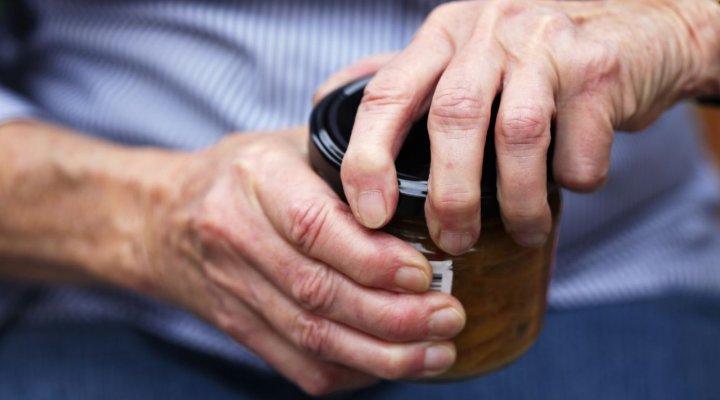The best diet to prepare for orthopaedic surgery

Orthopaedic surgery describes any kind of surgery performed on the musculoskeletal system that includes the bones and joints. It also includes surgery to the ligaments, tendons and muscles that allow the bones and joints to move.
Common orthopaedic surgery sites include the shoulders, hips, knees and ankles and the joints can be fully or partially replaced with artificial versions, depending on the level of damage or disease and how much discomfort is being experienced.
Having this kind of surgery can be daunting, and you may be feeling anxious about your recovery. Preparing as much as possible before your surgery can help to ease the burden and stress of thinking about how you’ll feel after surgery.
The King Edward VII’s Hospital Joint School provides lots of information on what you can do to help prepare yourself for surgery, including learning any relevant recovery exercises before you have surgery so that you’re fully prepared.
But physical movement isn’t the only aspect of life that can help with your preparation and recovery. What you eat is just as important – in the lead up to surgery, during your recovery and beyond.
In this article, King Edward VII’s Hospital Consultant Dietician, Mr Rick Miller, gives advice on the best diet to consume in the days and weeks leading up to orthopaedic surgery, what foods will aid your recovery and why and what foods are best avoided.
What foods are important in the weeks leading up to orthopaedic surgery?
It’s very important to ensure that you’re consuming plenty of protein-rich foods in the days and weeks leading up to your surgery date. Lean, healthy protein sources include chicken and turkey breast, fish, eggs, dairy products, beans, pulses, peas, chickpeas, nuts and seeds.
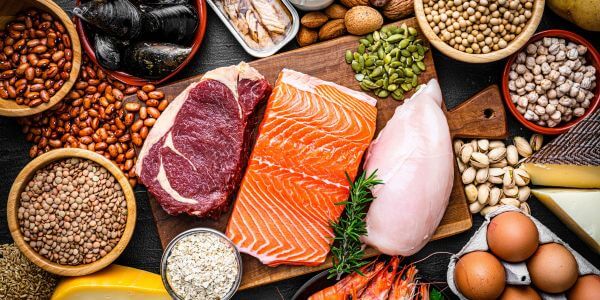
Why is this diet recommended before surgery?
Protein supports the body’s growth, recovery and repair processes. As such, if you’re eating a low protein diet and your body isn’t getting enough, then your recovery from surgery could take longer.
Therefore, to prepare your body properly, consume protein-rich foods every day before surgery to ensure you have enough protein reserves.
What should I eat the night before orthopaedic surgery?
A good rule of thumb the night before surgery is to opt for a lighter or smaller meal than you would normally eat, earlier in the evening. Eating lighter and earlier will help to ensure that your meal is fully digested and the nutrients fully absorbed before the morning of your surgery.
Sticking to familiar foods that you’re used to, as opposed to trying something new that could potentially upset your stomach is also wise.
Drink plenty of water too, to help your body stay well hydrated. This will help your body feel better prepared for anaesthetic and surgery.
Also, avoid alcohol as this can dehydrate you and affect your sleep quality, leaving you feeling unrested before you head into surgery the following morning.
What should I eat on the morning of surgery?
On the morning of your surgery, a light, protein-rich breakfast several hours before your arrival or appointment time is recommended. Choose something easy to digest, such as poached or scrambled eggs or a bowl of natural yoghurt and fruit.
These foods are an excellent way to get crucial protein into your body before surgery, without leaving you feeling bloated and uncomfortably full. Drink at least one glass of water with your meal too, to avoid becoming dehydrated.
If your surgeon or medical team have advised you not to eat on the morning of surgery, then it’s important to follow their advice and avoid eating anything for breakfast.
It is however still important to stay hydrated, so ensure you have at least one glass of water before arriving at hospital.
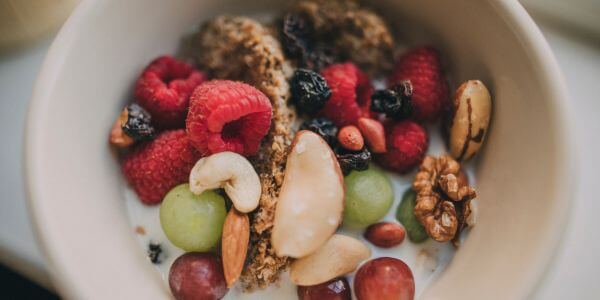
Is there anything I should avoid in the days before and after surgery?
It’s strongly recommended that you avoid alcohol in the days immediately before and after your surgery date. Alcohol can hinder your journey back to full health and it can also increase your risk of trips and falls, which could set your recovery back.
Is there a special diet that I need to follow after orthopaedic surgery?
There is no strict or special diet that accompanies the recovery period after orthopaedic surgery. However, it’s important that you continue to consume lean protein sources with the majority of your meals, to help support a quick and trouble-free recovery. This is especially important after orthopaedic surgery as it involves the muscles, soft tissues and bones that take time to repair.
It’s also a good idea to consume foods that are rich in omega 3 fatty acids. Omega 3 fatty acids are a type of healthy fat found in oily fish such as salmon and mackerel and seafood such as prawns and mussels. Fish and seafood also have anti-inflammatory properties that make these foods ideal for supporting your body after surgery.
If you don’t eat fish, you could consider an omega 3 supplement. Plant-based omega 3 supplements are also available, that are made using omega 3 sourced from algae.

If you’re struggling to eat enough food due to feeling nauseous or unwell or because you’re taking medications that suppress your appetite, stick to liquid sources of nutrition such as soups and smoothies until you feel more able to eat a full meal. Eating lighter meals, more often, may also help to ensure you’re getting enough energy in the form of calories in your post-operative diet.
If you’re feeling unwell or emotional from surgery, it can be tempting to get your calories from comfort foods such as ice cream, chocolate and ready meals. It’s also possible that well meaning loved ones bring you “get well soon” chocolates and other treats.
But eating a nutritionally poor diet high in such foods will detract from your recovery. Instead, encourage your friends and family to help by cooking you nutritious, high protein meals and light bites.
Why is diet important to my recovery?
Just as a protein-rich diet is important for fuelling your body prior to orthopaedic surgery, the same diet is essential for the growth and repair of your soft tissues and bones as you recover.
A healthy diet, in conjunction with a bespoke physiotherapy schedule, will also provide the energy you need to get back to full health.
Should I lose weight before having surgery?
If you need to lose weight, then losing weight prior to undergoing most surgeries is a good idea. Following a plan that’s tailored to you and your needs based on your health, activity level and how much weight you need to lose, is the best approach.
However, some useful weight loss tips include reducing and even removing alcohol, sugar-laden foods, processed foods and treats from your diet. If you’ve already taken steps to reduce or remove these, try reducing the portion size of your meals and emphasising protein at your main meal. This can really help you lose a few more pounds before your hospital date.
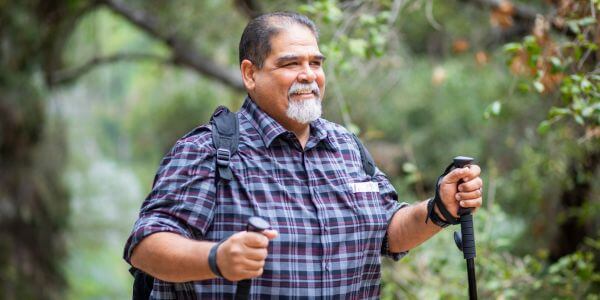
What’s the best diet plan in order to maintain a healthy weight after orthopaedic surgery?
The best diet plan is one that’s specific to you, your goals and any current health issues. Following popular diets is extremely unwise unless you have direction, support and guidance from a nutrition expert.
To make a positive start, reduce treats and processed foods and replace them with fruits, vegetables and proteins to start to encourage natural weight loss.
Do I have to avoid all treats?
Leading up to surgery and during your recovery, it’s certainly ok to have some treats such as cakes and biscuits. Just keep them to a minimum, especially if you’re on a weight loss plan, and be mindful that they don’t detract from the rest of your pre- and post-operative diet.
It does however make sense to avoid alcohol around the time of your operation and in the first few days following surgery, to give your body the best chance of a full and restful recovery.
More information
- If you’re struggling with joint pain and you think you may require orthopaedic surgery, speak to your GP who may refer you to a specialist. (Don’t have a GP?)
- The King Edward VII’s Hospital Orthopaedic Surgery department is a world renowned centre of excellence staffed by leaders in their field. Don’t let joint pain get in your way, make an appointment today.
- We also have dedicated centres that specialise in assessing, diagnosing and treating shoulder, hip and knee pain.







